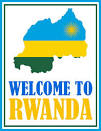This is a guest post by Alexander Hitchens, cross posted from Standpoint
The Tax Payer’s Alliance (TPA) has released figures (pdf) today on every local authority that has received Preventing Violent Extremism (PVE) funding and what organisations have benefitted from it. The PVE fund has so far given out £12 million in tax payer money to projects aimed at preventing radicalisation.
One organisation, the Muslim Welfare House (MWH), has received just under £50,000 in PVE funds over the last two years. The MWH is a member of the Federation of Islamic Organisations in Europe (FIOE), which represents the Muslim Brotherhood (MB) in Europe. The FIOE has very close ties with Holocaust promoter and leading MB scholar Yusuf al-Qaradawi, and his European Council for Fatwa and Research (ECFR) was founded by the FIOE. This year, the FOIE commissioned Qaradawi to author a report entitled ‘The Nation and Citizenship in Light of the Origins of Islamic Doctrine and the Intentions of Shari’ah’. On their website, the FIOE claims that it wishes to ensure ‘an accurate introduction of Islam’ in Europe. That the FIOE consider Qaradawi as the best candidate to represent an accurate picture of Islam is a testament to how the organisation itself sees the religion.
The MB connections with the MWH are strong and up until 2007, of the 5 registered owners of the MWH, 3 were also directors of the Muslim Association of Britain (MAB), the Brotherhood’s main presence in the United Kingdom. Among them was Mohammed Sawalha, described by IslamOnline’s Arabic site as the “UK head of the Political Committee of the International Muslim Brotherhood organisation”, identified by the BBC as a “fugitive Hamas commander” and signatory to the now infamous Istanbul statement which called for continued support for Hamas and indirectly sanctioned attacks on the Royal Navy in the eastern Mediterranean. Joining Sawalha at the MWH until 2007 was Abdel Shaheed el-Ashaal, who is referred to by the pro-Brotherhood magazine Islamism Digest as a senior member of the Muslim Brotherhood and who until 2000 was the company secretary for a company called the Hassan el-Banna [MB founder] Foundation. One of the stated aims of the Foundation was “to give a correct image of the thoughts, ideology and life of Imam Shaheed Hassan el-Banna.”
Since 2007, the MWH has undergone something of a clean-up, with all of its MB connected trustees and owners replaced with ‘clean slates’. However, its connection with the FIOE means that it continues to carry out the work of the MB in the UK. Although the MB does not present a direct terrorist threat, it promotes an ideology which helped create modern jihadist terrorism and is fundamentally incompatible with western notions of statehood. French MB expert and author of ‘The Muslim Brothers in Europe: Roots and Discourses’, Brigitte Marechal, has written how the MB in Europe continues to promote Islam not simply as a religion, but an all-encompassing framework which “suggests that Islam should be understood as a complete system that concerns state and nation, beliefs and legislation, cult and behaviour, and the social, political and historical.” This all-encompassing ideology, which MB founder Hasan al-Banna referred to as shumuliyyat al-Islam and 1 of the 10 pillars of the MB project, is one of the driving forces for the jihadist terrorists who are currently trying to enforce sharia in Afghanistan, Iraq, Somalia, Indonesia, Malaysia and numerous other fronts. However, the problem with the MB ideology does not lie only in its deep connections with jihadism, but also in its subversive promotion of Islam as an actual alternative system of governance.
The intention of the MB in Europe, and particular in the UK, is not to recruit suicide bombers, but rather to peacefully promote the shumuliyyat al-Islam in the hope that it will gradually initiate a reform of society along Islamist lines. Using front groups like the MWH and MAB, they disseminate their ideology among British Muslims by organising events and lectures, and have seen some success in creating ‘ummah centric’ mindsets, whereby young Muslims feel a greater affinity with fellow Muslims around the globe than with their non-Muslim next door neighbour.
Those who may still insist that promoting the ‘soft’ Islamists of the MB is the only effective way to counter the violence of al-Qaeda should ask themselves how a band of reactionaries who either deny the existence of the threat, or openly praise bin Laden, could possibly be of any use:
- The Egyptian MB’s General Guide, Mahdi Akef, only last year refused to label bin Laden a terrorist, instead opting for the more cordial “jihad fighter” who battles against “oppression and corruption.”
- In 2004, Ahmed al-Rawi, former president of the MAB and president of the FIOE until 2007, signed a declaration supporting jihad in Iraq.
- Yusuf al-Qaradawi co-signed a letter earlier this year which claims “the events of the 11th of September 2001 were nothing but fabricated drama by some influential forces in America in co-ordination with Israeli Mossad.”
- Upon the arrest of the recently convicted transatlantic terrorists, former MAB spokesman and Hamas cheerleader Azzam Tamimi (who was given an MWH platform last January) could only offer the pathetic suggestion that the entire episode was invented by the government so as to “smear the image of Islam and the Muslims”.
Of course, there should be no attempts at censoring or criminalising MB members, activists and supporters – giving them the right to speak freely and organise themselves is a price worth paying to preserve our liberal society. However, this does not mean that people should ignore the detrimental effects that the MB belief system can have on national unity, integration, citizenship and security. Rather than paying for its promotion, the government should be providing more robust arguments against the politicised Islam of the MB.


